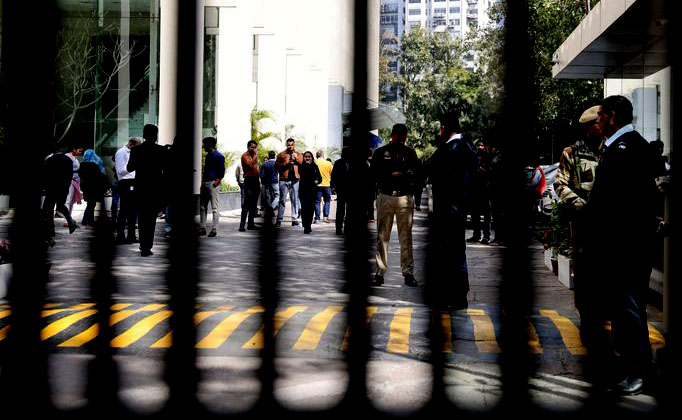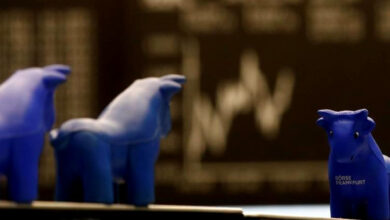According to some journalists, the BBC tax searches shed light on Indian media independence under Modi.

NEW DELHI (Reuters) – According to two witnesses, around 11 a.m. on Feb. 14, about 20 Indian tax officials and police officers stormed into the BBC’s New Delhi headquarters, ordering employees to leave their computers and give over their mobile phones.
Tax authorities conducted a second raid at the company’s office in Mumbai, India’s financial centre. The government claimed that the BBC had failed to reply to numerous demands to clarify its tax issues regarding profits and remittances from its Indian activities.
The BBC has said it is cooperating completely with tax officials and expects to resolve issues swiftly, adding that its journalists would continue to report “without fear or favor.” It refused to respond to this article.
Three weeks before the searches, which the government called a “survey,” the BBC aired a two-part programme about Prime Minister Narendra Modi’s involvement in sectarian violence in his home state of Gujarat in 2002, when he was chief minister. The documentary, which was only shown in the United Kingdom, accused Modi of creating an environment of lawlessness that fueled the violence.
The documentary has been labelled “biassed” and showing a “colonial mentality” by Modi’s administration. Foreign Minister S. Jaishankar told the ANI news agency last week that it was “politics by another means” and that the scheduling was designed to weaken Modi’s support. The BBC has stated that it sticks by its findings.
The 72-year-old prime minister has high popularity ratings and is likely to compete for reelection for the Hindu nationalist Bharatiya Janata Party (BJP) next year.
In late January, Indian officials ordered the removal of social media posts promoting the documentary, and police detained some Indian students who attempted to watch it, claiming that it would disrupt the calm. They were freed not long after.
The tax checks at the BBC’s offices, during which officials copied the mobile phones of some top staff and examined computers, have underlined some journalists’ and media rights watchdogs’ worries about a deterioration in press freedom under Modi.
“There has never been a golden period of Indian journalism,” said Abhinandan Sekhri, chief executive of Newslaundry, an independent online media group whose New Delhi headquarters were surveyed twice by tax officials in 2021 following critical coverage of Modi’s government. “But it’s never been like this before.”
In November, a court in Delhi dismissed a criminal case brought by the tax department against Sekhri, claiming tax fraud and fabricating a value report. Sekhri has filed a lawsuit against the government for violations of his basic rights and freedom of speech, and the case is being heard in the Delhi High Court.
Modi’s administration has categorically denied that the BBC tax audit—the first against a foreign news organisation in decades—was in reaction to the film.
“The BBC works in India through two private companies; they are subject to scrutiny and tax rules just like any other foreign business,” said Kanchan Gupta, top adviser to the Ministry of Information and Broadcasting. He claimed that the BBC had received more than ten tax notices before the programme was broadcast.
Reuters was unable to directly corroborate this. The IRS did not reply to a request for comment on this report.
Since Modi’s election in 2014, India has dropped from 140th to 150th in the World Press Freedom Index, a yearly rating compiled by the non-profit Reporters Without Borders.
Modi’s administration rejects the index’s results, calling its methods into question, and claims that India has a thriving free press.
With 1.4 billion people, India is the world’s most populous nation, with thousands of publications and hundreds of TV news networks.
Gupta, the information ministry’s advisor, disputed that any government body had targeted the media in reaction to coverage or suspended any ads. He claimed that the administration had frequently stated that harassment of the media was unacceptable and illegal.
CHOKING TOOLS
The BBC searches, according to the Editors Guild of India, are part of a pattern of “government agencies being used to coerce and attack news organisations.” It mentioned four identical tax audits against media in 2021.
In one of them, tax officials searched the offices of Dainik Bhaskar, one of India’s biggest newspapers by circulation, in July 2021, alleging that it evaded taxes on revenue worth 7 billion Indian rupees ($84.47 million). The allegation has been disputed by the paper, and the matter is still continuing.
The newspaper, which is owned by DB Corp, one of India’s biggest media conglomerates, published a series of stories claiming that officials bungled the COVID-19 epidemic and underreported fatalities. The administration has refuted any errors in response or undercounting.
The searches, according to a top Dainik Bhaskar executive who requested not to be named due to the sensitivity of the matter, followed an unexplained halt in advertising by the federal government and six BJP-controlled states beginning in February 2021. According to him, the suspension continued until August 2022 and cost the publication more than 1 billion rupees ($12.25 million).
The newspaper’s spokesman refused to respond. Requests for feedback were not returned by the state administrations. When asked about the issue, Gupta, a senior adviser at the Ministry of Information and Broadcasting, stated that the government did not remove advertisements due to critical reporting.
Reporters Without Borders stated in a report last year that, despite high viewership, many Indian news organisations were susceptible to economic pressure due to their dependence on government advertising.
According to the report, the acquisition of some media organisations by millionaires perceived to be close to Modi has resulted in the silencing of critical views in the Indian press.
The federal government spent 64.9 billion Indian rupees ($784.34 million) on ads in print and electronic media between 2014 and early December 2022, according to a statement to lawmakers at the end of last year. However, the data indicate that spending has been decreasing in recent years.
According to Gupta, there were protests after the government decreased its advertising expenditures, but this was not an attack on media freedom.
“The government does not exist to support the media.” “We don’t want a media that is indebted to us or devoted to us because of the money we give them,” he stated.
“CRITICS AS ENEMIES”
According to reports from international press freedom watchdogs such as the Committee to Protect Journalists (CPJ), the federal and state administrations in India have imprisoned a growing number of journalists for their reporting, in addition to financial constraints on media organisations.
According to the CPJ’s annual worldwide tracker published on December 14, at least seven journalists remained imprisoned in India as of December, the largest total in 30 years.
Reporters have been detained in some cases by state administrations, which oversee local police units, after reporting on minor problems.
Ajeet Ojha, a reporter with the Hindi-language daily Amar Ujala in the northern state of Uttar Pradesh, penned a story on March 29, 2022, about high school evaluation test papers being leaked to pupils in advance in the town of Balia. Ojha stated that an inquiry into who leaked the documents was still underway.
According to a police record obtained by Reuters, the 42-year-old reporter was arrested the next day and suspected of leaking the test papers himself.
“I spent 27 nights in prison,” Ojha said, adding that he is still charged on two counts, despite the fact that authorities withdrew some criminal accusations against him. The Balia police department did not reply to inquiries for comment.
Gyanendra Shukla, a seasoned reporter who spearheaded the movement for Ojha’s release, said the BJP-controlled state administration regarded “critics as an adversary.”
“They’ve forgotten that a journalist’s job is to expose issues and criticise the system,” he said.
The administration of Uttar Pradesh did not reply to requests for comment. The detention, according to Gupta, is the responsibility of state officials.





